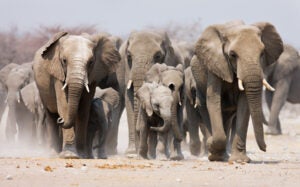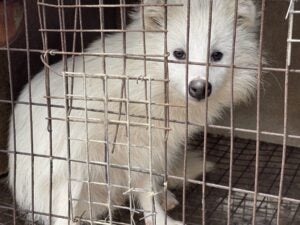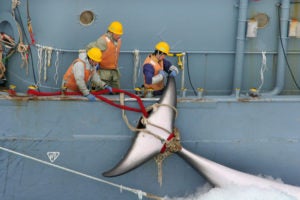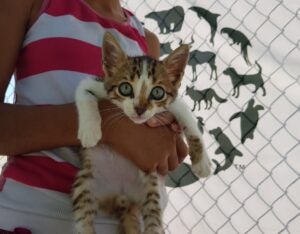
On October 24, the provincial conservation and management authority Ezemvelo KwaZulu-Natal Wildlife issued an urgent call for non-lethal solutions for elephant conflict mitigation of roaming elephants following the recent movement of approximately 30 elephants into the Esidakaneni area, posing a potential threat to the safety of the community and the elephants.
The herd of elephants originated from the privately owned Mawana Game Reserve, where they were originally introduced in 2003. Often in cases like this, to mitigate human-animal conflict these animals are killed under a culling or Damage Causing Animals permit by the provincial wildlife authority.
In response to EKZNW’s urgent request for NGOs to assist, Humane Society International/Africa , with support from Wildlife Warriors Africa and another team who wish to remain anonymous, and representatives from Mawana and Loziba game reserves, immediately stepped in and responded with the facilitation and coordination of drones to move the elephants away from the community areas, as a helicopter was not immediately available. The delicate task of humanely shepherding the elephants back to safety was undertaken on October 24 and deemed to be successful. The herd was monitored until after sunset and were seen moving further away from the community areas. The situation was reassessed the next day, and whilst the elephants remained distant from the community areas, a decision was made to dispatch a helicopter with support from HSI/Africa to push the elephants back to Mawana Game Reserve. Teams on the ground confirmed that both the elephants and the community residents are calm.
This is not the first time that these elephants conflicted with local communities. Earlier this year nine so-called “problem” elephants were killed due to supposed overpopulation and human-wildlife conflict. One of the elephants was carrying an unborn calf whilst another elephant was lactating, though her calf was not found.
EKZNW acts as the conservation and management authority and whilst NGOs may be able to conduct activities such as collaring or deploying mitigation strategies NGOs cannot do so without authorisation.
Contrary to a EKZNW press release on October 24, HSI/Africa with Elephants Alive have submitted proposals for humane elephant conflict mitigation solutions for the Mawana elephants since May 2024. This includes a temporary fencing solution, elephant shepherds and workshops, as per their requested mandate providing immediate relief to both the community and elephants. A consortium of other NGO’s also submitted other short to long-term solutions including permanent fencing. Every effort has been made by HSI/Africa and the relevant NGO consortium to have this proposal discussed and either modified or finalised. Since then, this proposal has been submitted multiple times and feedback has been requested from EKZNW, but no approval has been granted. Suggesting a working relationship with EKZNW is nothing new; HSI/Africa has been implementing humane non-lethal elephant population control in line with South Africa’s National Norms and Standards for the Management of Elephants since 2020.
Dr. Audrey Delsink, senior wildlife director for Humane Society International/Africa, states: “We are relieved that our efforts to mitigate human-wildlife conflict and prevent potential harm to the Mawana elephant herd and community this week have been successful. We are grateful to work alongside like-minded partners and EKZNW in the last two days’ interventions. However, the time and opportunity to address this matter should have been taken when the proposals were first submitted more than five months ago. We have been trying to work with EKZNW towards a vision of coexistence between the elephants and surrounding communities and coordinate a meeting for months. Now EKZN has arranged to have a meeting with the NGO grouping towards the end of November entitled ‘Towards Co-existence: Government working with NGOs and the communities in Mawana.’ We hope for an open, collaborative and transparent discussion that will craft a viable solution based on prior proposals and constructive dialogue. As conservation NGOs supporting EKZNW in their role as management authority, we are aligned with their guidance and await the urgent decisions concerning this elephant herd.”
HSI/Africa has requested EKZNW to confirm that no destruction of the elephants is to take place within the legal framework whilst deliberation and implementation of the non-lethal proposals takes place.
HSI/Africa and its partner organisations remain committed to assisting EKZNW as the management authority to conserve these animals and protect communities alike.
ENDS
Media contact: Leozette Roode, Media Specialist for HSI/Africa: Lroode@hsi.org; +27 (0)71 360 1104









